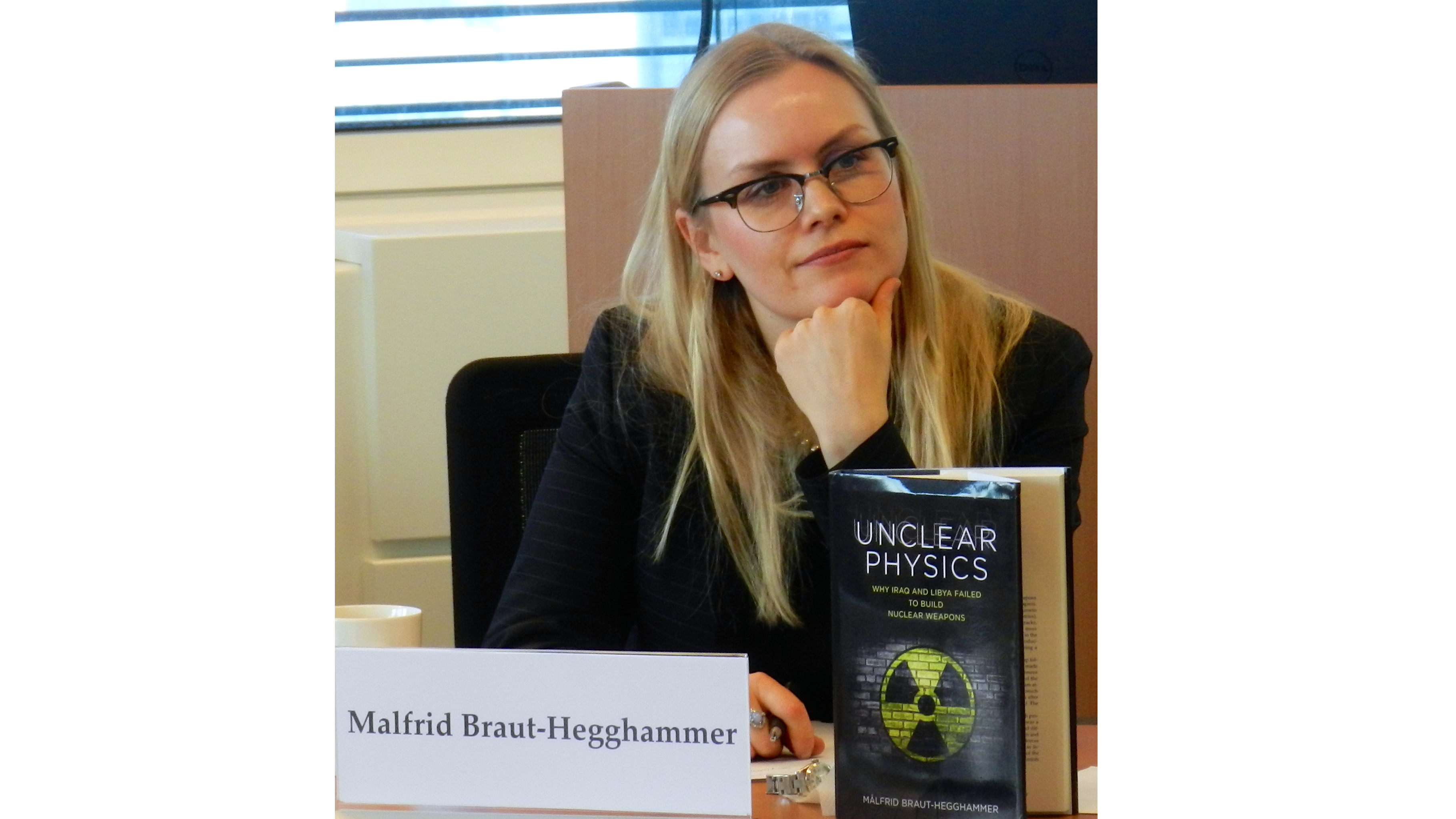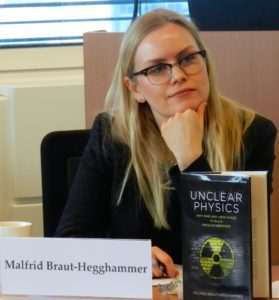

On 16 February 2017, the VCDNP hosted a seminar by Malfrid Braut-Hegghammer, Associate Professor of Political Science at the University of Oslo, who presented her book entitled Unclear Physics: Why Iraq and Libya Failed to Build Nuclear Weapons.
The book aims to explain why and to what extent the two countries, Iraq and Libya, differed in their respective failures to acquire nuclear weapons. Whereas Iraq almost developed nuclear weapons, Libya did not even come close. In order to explain the differences and nuances between the nuclear weapons programmes of these two countries, the author reconstructed in detail the nuclear history of Iraq and Libya since the 1950s. Relying on a variety of primary sources, including archival material and personal interviews, the author’s findings challenge conventional wisdom about both countries’ nuclear weapons programmes.
Ms. Braut Hegghammer argues that the main reason why Iraq and Libya failed to acquire nuclear weapons is that neither leader made the nuclear weapons programme their top priority. Ms. Braut‑Hegghammer’s analysis introduces a crucial variable: state capacity. The speaker asserts that, contrary to conventional wisdom, personalist leaders can succeed in the endeavour to build a bomb only if there’s a robust state infrastructure in place. In both circumstances, the institutional weakness created by the leaders halted progress. In Libya, almost every initiative was followed by immediate inertia, which was mainly caused by the struggle to find manpower. The author mentioned an interesting anecdote: the Libyan authorities unrealistically believed to be only five years away from developing a bomb. In the case of Iraq, Ms. Braut-Hegghammer developed an interesting counterfactual: Iraq’s nuclear weapons programme could have succeeded in the course of the 1990s, had Saddam Hussein decided not to invade Kuwait.
The seminar was followed by an interesting debate in which a well-informed audience of senior officials engaged with the author. The book fills an important gap in the existing literature, but also stimulates further research on a number of conceptual issues for non-proliferation. Political scientists should seek to answer why certain countries were less likely to complete their nuclear weapons programmes. Ms. Braut-Hegghammer’s analysis provides researchers with a basis from which they can draw more sound conclusions and findings that can be applied to examine other case studies. Tellingly, a number of questions concerning similarities with authoritarian or totalitarian regimes were raised, noting the need for further research in this area.